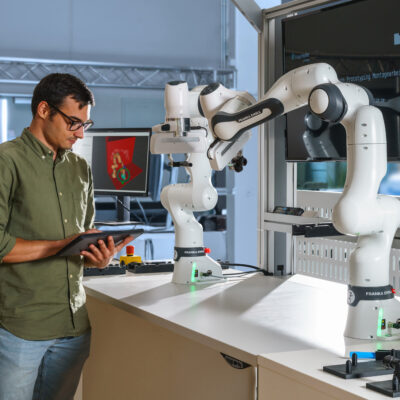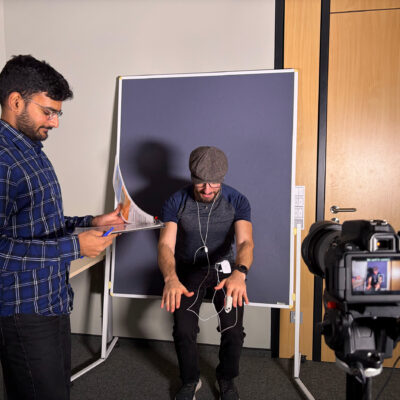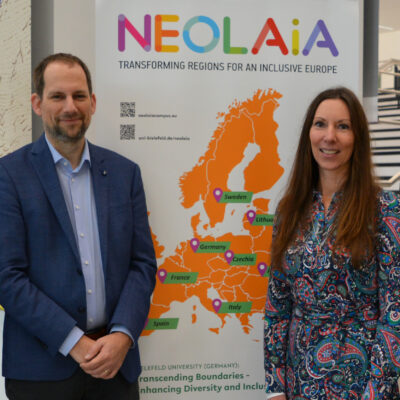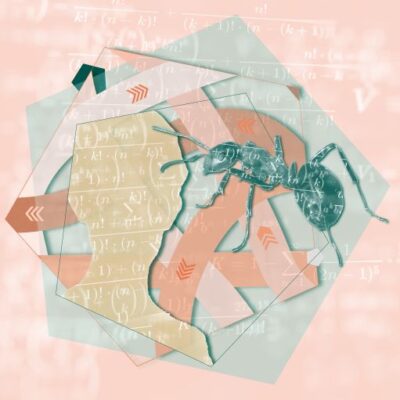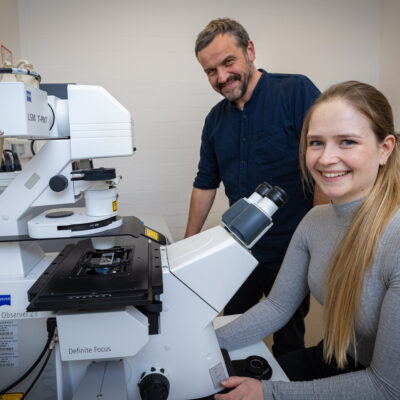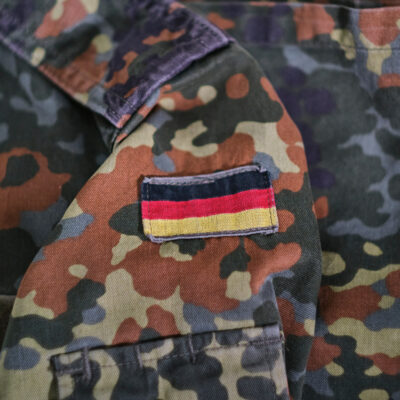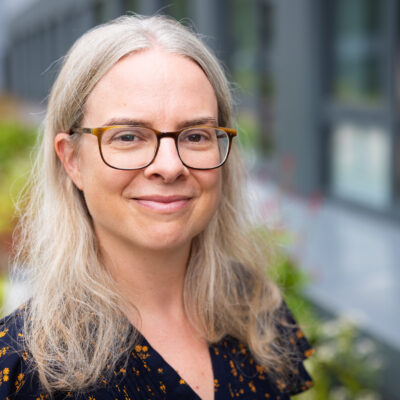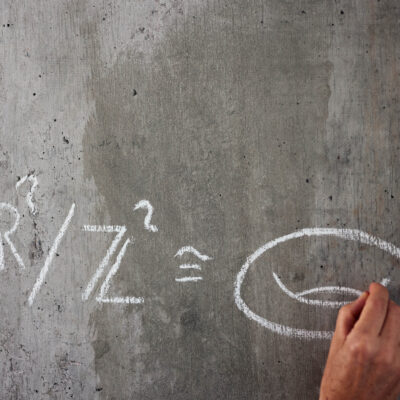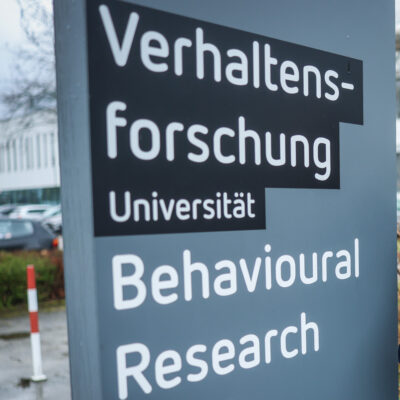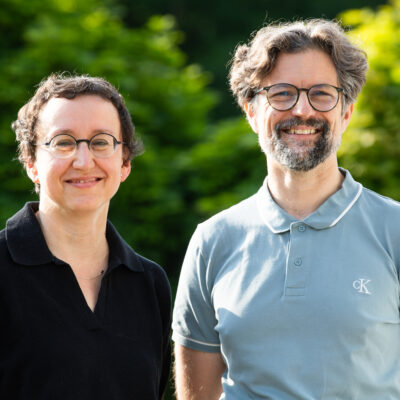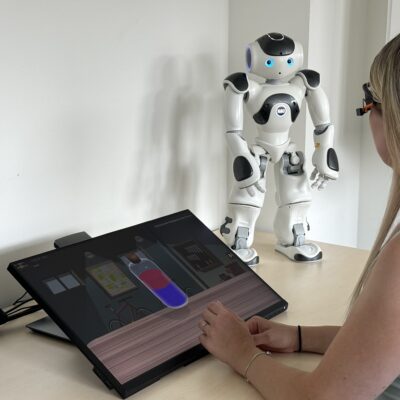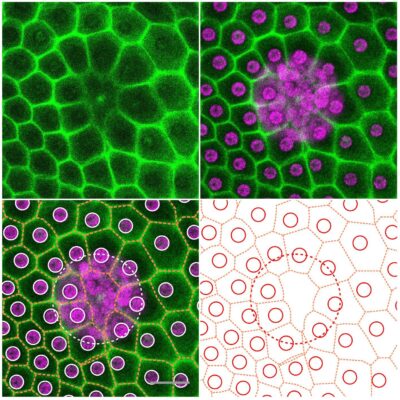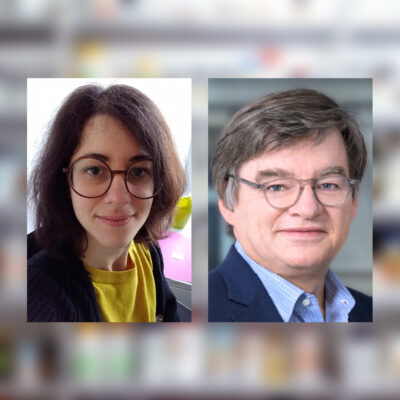© Tim Schubert
Live Ideas: New teutolab for Social Sciences launches
Bielefeld University is establishing a new extracurricular learning space with the teutolab for social sciences. Combining politics, economics and sociology, it invites young people to critically explore everyday life, social conflicts and future challenges.
Read more »© indigo(c)2023
Humans and Machines as a Team: New “Humation” Alliance
How can humans and machines be brought together in ways that benefit both? This question drives the new competence network Humation – Human-Centred Automation, founded jointly by Bielefeld University and the Fraunhofer IOSB-INA in Lemgo.
Read more »© Drimalla
Contactless Pulse Measurement Falters at High Heart Rates
Researchers at Bielefeld University have analyzed how reliably AI methods can detect pulse rates from simple video recordings.
Read more »© Norma Langohr/ Bielefeld University
Europe meets in Bielefeld
The NEOLAiA Focus Academy celebrated its premiere at Bielefeld University, bringing together students from across Europe to explore digital transformation and entrepreneurship.
Read more »© ZiF
Robust Decisions in Natural and Artificial Intelligence
People, animals and AI make decisions every day under conditions of uncertainty. A new international research group at ZiF Bielefeld is investigating robust decision-making strategies for this purpose. For the first time in a workshop from 8 to 19 December.
Read more »© Elena Berz
Make foams recyclable via break points
Chemists at Bielefeld University receive funding to apply research on recyclable plastics.
Read more »© Neuenkamp
What Our Meadows Reveal About the Future
Meadows are quietly losing their diversity – often before we even notice. A research team led by Prof. Dr Lena Neuenkamp has now demonstrated in Nature Ecology & Evolution that spatial data can predict changes in species diversity over time with astonishing accuracy.
Read more »© Vreni Jäckle
Thinking Takes Energy
A new study shows how our brain metabolism sets the limits of thinking. Researchers explain why cognitive models remain incomplete without considering biological resources.
Read more »© Bielefeld University/ Mike-Dennis Müller
Cells Pull the Emergency Brake When Oxygen Runs Low
When cells face a lack of oxygen, they switch to energy-saving mode:
A team at Bielefeld University shows how they deliberately slow down their secretory transport pathway to do so.
© Oliver Krüger
Focusing on the individual: how diversity advances research
What makes individuals unique—and why is that important? The new focus area InChangE delivers insights.
Read more »© privat
Our Solar System Is Moving Faster Than Expected
Our solar system is racing through space faster than current models predict – as shown by a new study from Bielefeld University. The surprising findings challenge fundamental assumptions of cosmology.
Read more »© ZEN SUMR
Public Opinion Divided on Military Service
Conflict Monitor: Younger People Favor Voluntarism, Older Generations Call for Compulsory Service.
Read more »© Alex Photo/stock.adobe.com
Polio Vaccination Remains Essential
A new study shows: The polio vaccine remains essential. Prof. Dr. Oliver Razum emphasizes: Eradication is unlikely, vaccination protection remains indispensable.
Read more »© Bielefeld University/Mike-Dennis Müller
Clinical Guidelines as a lever for more equitable healthcare
How can clinical guidelines be designed to enable equitable and inclusive healthcare – and at the same time promote research and innovation? Professor Dr Sabine Oertelt-Prigione and her colleagues discuss these questions in their contribution to the current special edition of the British Medical Journal.
Read more »© Bielefeld University/ Patrick Pollmeier
New paths in mathematics
The ESyMath focus area aims to bring together different areas of mathematics and related sciences in order to exploit and further develop synergies.
Read more »© Universität Bielefeld /Sarah Jonek
Research Team Explores Inclusion at Conferences
A research team from Bielefeld University investigates how inclusive academic conferences really are and offers concrete recommendations to promote participation and diversity.
Read more »© Marc Gilles
City lizards turn out to be surprisingly social
Narrow walls, few hideouts: in cities, wall lizards build more social ties and form stable bonds, unlike their more solitary counterparts in natural habitats.
Read more »© Bielefeld Univerity
How humans and AI work as a team
How can cooperation succeed between humans and AI? The FAITH focus area at Bielefeld University is researching the hybrid teamwork of tomorrow.
Read more »© Bielefeld University
Partnerships boost life satisfaction
Life satisfaction rises significantly when people move from living alone into a committed relationship and start living with a partner. This is shown by a new study from Bielefeld University and the University of Greifswald and the University of Warwick.
Read more »© TRR 318 und Sarah Jonek
Humans and Machines Learn Differently
Bielefeld researchers analyze in “Nature Machine Intelligence” how humans and AI systems learn new things and what this means for the future of Artificial Intelligence.
Read more »© TRR 318/ Stefan Sättele
Developing explanations together
After four years of intensive research, the Transregional Collaborative Research Centre 318 “Constructing Explainability” takes stock. In this interview, the two spokespersons share key insights.
Read more »© TRR 318
Robot Nao as an Attentive Explainer
How can a robot best support us linguistically in solving tasks? Researchers from TRR 318 Constructing Explainability have investigated this question.
Read more »© Bielefeld University
How Cells Build Complex Structures as a Team
How does the collective interaction of many individual cells create a perfectly formed organism? This question is the focus of a new study.
Read more »© privat
How to Understand Complex Systems
An international research group on the theory of random matrices is being launched at the ZiF in Bielefeld. It is investigating how new methods can be used to better understand complex systems ranging from ecology to AI.
Read more »
